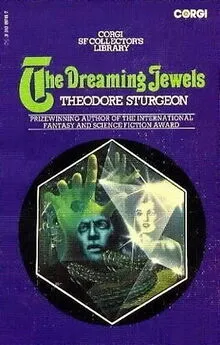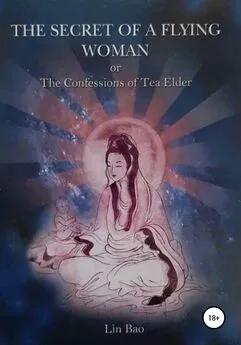Kim ManChoong - The Cloud Dream of the Nine
- Название:The Cloud Dream of the Nine
- Автор:
- Жанр:
- Издательство:неизвестно
- Год:неизвестен
- ISBN:нет данных
- Рейтинг:
- Избранное:Добавить в избранное
-
Отзывы:
-
Ваша оценка:
Kim ManChoong - The Cloud Dream of the Nine краткое содержание
The Cloud Dream of the Nine - читать онлайн бесплатно полную версию (весь текст целиком)
Интервал:
Закладка:
Then the Empress Dowager called Phoenix and said to her: “The Princess desires that you should keep each other company through life and unto death. I therefore appoint you a secondary wife to General Yang, so that your wishes may come to pass. In future let all your heart go into repaying the Princess for her kindness to you.”
Chin See, overcome with gratitude, shed tears and spoke her thanks.
The Empress went on: “The marriage of the two Princesses is now happily decided upon, and a jay bird of good omen comes to confirm it. I have already had the Princesses write for me, and now that you, too, have found a place of refuge and have the same happy prospect in view, you must write for me as well.”
At once Chin See wrote and handed her verse to the Empress. It read:
"The happy jay that shouts his mirth
Athwart the Palace halls,
Has seen the spring on gilded wing,
Step forth within his walls.
So, too, the humble phoenix bird
Will long no more to roam,
But with the four, she'll meet once more,
And join the happy home.”
The Empress along with the Emperor read the verses and in delight said: “Even Sa Do-on who wrote concerning the willow catkins could not surpass this. The verse also follows the Book of Poetry and draws a clear distinction between the first and second wife, most sweet and becoming.”
Princess Orchid said: “The subject and material from which this verse is drawn are limited, and we two sisters had already written all that was to be said about it. Poor Chin See had nothing left on which to place her hand, and yet how pretty it is.”
The Dowager replied: “Since ancient times the most noted writers among women were Pan Heui, Chai Nyo, Princess Tak-moon and Sa Do-on, these four only. Now three girls of unsurpassed ability meet in one and the same dwelling-place. It is surely a marvellous sign.”
Orchid replied: “Princess Blossom's waiting-maid, Cloudlet, is also greatly gifted with the pen.”
At this point the day began to draw late and the Emperor withdrew to the outer palace. The two Princesses retired and slept in their rooms, and when at the earliest dawn the cocks crew, Blossom went in and made her salutation to the mother, and asked permission to withdraw, saying: “When your child came into the Palace, my parents must certainly have been anxious and full of wonder. May I please withdraw for a little, see them, and make my boast to all my kin of the grace of your High Majesty and the loving kindness and beauty of my sister Orchid? Kindly grant me this favour.”
The Empress said: “My child, how can you think of leaving me so easily? I have something to consult about with your mother, and so shall make request that she come here in audience instead.”
The Cheungs, when they heard what the servant had come to tell, were somewhat relieved from their fears, and a feeling of thankfulness took possession of them. Suddenly the command came for the lady Cheung to report in the palace.
The Empress met her, took her by the hand, and said: “My taking possession of your daughter is not only because I love her beauty, but for the sake of Princess Orchid's marriage. Once having seen her lovely face I can never let her go again, so I have made her my adopted daughter and the elder sister of Orchid. My thought is that in a former existence she may have been my daughter, and that she has now come to be yours. Since Blossom is a Princess, one ought really to give her the name of the Imperial household, but I have thought of your having no son, and so have not changed her name. You will know by this how deeply I love you.”
The lady Cheung could not express the thanks that filled her soul. She bowed low and said: “I, your humble subject, had a daughter born to me late in life whom I loved as one loves only gems and pearls. Her marriage proposals failed of fulfilment and we sent back the bridegroom's presents. My soul lost all its sense of life, and my bones seemed broken within me. My one wish was to die quickly and no longer see her sad and desolate plight. Unexpectedly the dear Princess came to our home and bent her lovely form to our low conditions, making friends with my humble daughter. Then she took her with her to the Palace and made her the recipient of undreamed of honours. This is indeed making green leaves to sprout forth on the dry tree, and waters to flow afresh along the parched bed of the stream. All my heart and soul and strength would go forth to requite, if possible, one of the thousand favours and kindnesses of your Majesty, but my husband is an old man and has many ailments of body. While his heart would desire it, still he is too old to enter upon the duties of office, and so make some small return. I, too, am feeble and am already a neighbour of the spirit world, so that I could not serve as palace-woman even to do menial labour. What can we possibly do to show our gratitude for the kindness heaped upon us by your Imperial Majesty? The only way I know is to let the grateful tears fall as rain.” She arose and bowed again, and then prostrated herself and wept till her sleeves were soiled with tear-drops.
The Empress, moved with pity, sighed and said: “Since Blossom is now my daughter your ladyship must never take her away.”
The lady Cheung replied: “How could I think of taking her away from you? But the fact that we cannot meet together and speak the praises of all your Majesty's worth is my only disappointment.”
Here the Dowager laughed and said: “Before the marriage ceremony she may not go out, but after that, of course, she may go. Do not be anxious about that. After the wedding Princess Orchid shall be put into your care, too, and you must look upon her just I do upon Blossom.” She called Orchid that she and lady Cheung should meet again. The lady Cheung several times spoke of her regrets at the way in which she had received the Princess when she came to call at her home.
The Empress said: “I have heard that you have among your waiting-maids a little one called Cloudlet; I should like very much to see her.”
The lady then summoned Cloudlet, who came in and made her bow before her Majesty.
The Empress said to herself: “Beautiful she is!” She made her come up close beside her, and then said to her: “I have heard Orchid say that you are very skilful with the pen. Will you not write something for me?”
Cloudlet said: “How could so ignorant a person as I dare to write before your High Majesty? But I shall try to do my best as you command me.”
The Empress opened up the four verses that had already been written and said: “Can you equal these?”
Cloudlet then brought her ink and pens and with one swift dash wrote her verse and handed it to the Empress Dowager. It read:
"This magpie heart of mine
Awakes to joys untold,
Shall join the circle superfine,
And both its wings unfold.
Ye pretty flowers of Chin,
Behold the wondrous sight,
A group of fairies gathering in
From all their scattered flight.”
The Empress read it, showed it to the two Princesses, and said: “I heard before that the lady Ka had great skill, but who would have dreamed of this?”
Princess Orchid remarked: “In this verse she likens herself to the magpie and us to the 'circle superfine.' She has caught the spirit of the old masters and reminds one of the songs of the Book of Poetry. Her thought is pretty but she has stolen it from the ancients. They say 'The birds of heaven find rest with man, and man is naturally sorry for the birds,' and this suggests Cloudlet.”
The Princess again said: “The chief of the waiting-maids is Chin See from Wha-eum, the one who decided to live and die with Cloudlet.”
Cloudlet replied: “Is this not Chin See who wrote the willow-song?”
Chin See gave a start and asked: “From whom did you ever hear of my willow-song?”
Cloudlet made answer: “General Yang has ever had you in his thoughts, and once when he repeated this verse I overheard him.”
Chin See, with a sorrowful countenance, said: “And so General Yang has not forgotten me?”
Cloudlet replied: “How can you suggest such a thing? The General carried hidden away with him these verses of yours, and when he read them the tears used to flow. When he sang them he sighed. How is it that you alone fail to know his loving heart?”
Chin See said: “If the General has the same love that he used to have, then this humble person, though she never see him again, can die happy.” Then she told of his verse that had been written on her silken fan, and Cloudlet said: “The hairpins and rings that I wear were won for me on that day.”
Then the maids-in-waiting gathered and reported, saying: “The lady Cheung is about to take her departure.”
The two Princesses went in and waited upon her, while the Empress Dowager said to the lady Cheung: “In a little time Yang the Wanderer will make his return and the former marriage gifts will naturally be sent once again; but to receive the gifts again that were once sent back would seem poor and mean. On the other hand, Princess Blossom having become my daughter, I want to have the two of them send theirs at one and the same time. Will your ladyship give consent? ”
Then the lady Cheung bowed low to the earth and said: “How can your humble subject dare to do otherwise? Let it be as your Imperial Majesty suggests.”
The Dowager laughed: “General Yang has for the sake of Blossom more than three times refused to do my bidding, and now I want to play a practical joke on him. They say in common speech: 'The unpropitious word turns out to be propitious.' You shall wait till he returns and then say that Cheung See has suddenly fallen ill and died. I saw in the General's letter that he had met her in a dream. On the first day of the ceremony I shall be amused to see if he will know her or not.”
The lady Cheung received the command, took her departure, and returned. The daughter saw her beyond the first palace entrance, and then bowed and spoke her farewell. She called Cloudlet and told her secretly of the plan to deceive the General. Cloudlet replied: “I have been a fairy and I have been an evil spirit to deceive him, and that is surely enough. Would it not be mean of me to attempt anything more?”
Cheung See replied: “This is not our plan, or our affair, but the Empress Dowager's.”
Cloudlet smothered her laughter and went away smiling.
At this time General Yang had made his soldiers drink the waters of the White Dragon Lake till their health returned and they longed for battle. The General then summoned his aides, gave them their orders and made them march forth at the sound of the drum. Just at this moment Chan-bo received the gem sent by the dancer Swallow, and knowing that General Yang's troops had passed Pan-sa valley, he approached the General's headquarters in a state of great fear and talked of surrender. The various leaders of the Tibetan forces took Chan-bo, bound him, entered General Yang's camp and there surrendered.
Once again Yang drew his troops up in order and marched into the capital, stopped the plundering of the city, and quieted the people. He then went up into the Kolyoon Mountains and put up a memorial tablet with a record of the power and goodness of the kingdom of the Tangs. Then he faced about with his army, sang his songs of victory, and returned home. When he reached Chin-joo it was already autumn; the mountains were bare and the earth dry and sear. All the flowers had been baptised in death and sorrow. The wild geese piped out their sad notes, reminding him that he was far away from home.
The General spent the night in a guest house. His mind seemed unrested and the hours long. Sleep failed him. He thought in his heart: “It is already three years since I left home and my mother's health cannot be as it has always been. To whom can she turn for protection and care in sickness? To what time shall I put off my morning and evening salutations to her? To-day the land is quiet, war has ceased, but my desire to wait on and serve my mother is not yet satisfied. I have failed in the serious part of life's duty and man's first requirement. For several years I have been busy with State affairs, have not married, and have found it difficult to hold my engagement with Cheung See. The various matters in which I have been disappointed proved the truth of the old saying: 'Eight or nine times out of ten comes disappointment.' Now I have quieted five thousand li of territory, and have received the surrender of a million rebels, so that my name will be heralded abroad as great. His Majesty will doubtless appoint me to some high office as a reward for my many labours. If I decline office and ask instead that my request to marry Cheung See be granted, I wonder if consent will be forthcoming? ”
Читать дальшеИнтервал:
Закладка:










